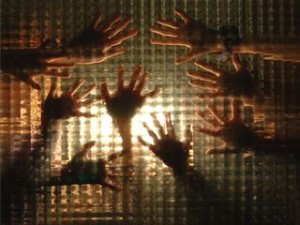Wake-up Sermon, part 5
The Wake-up Sermon’s concluding verses reconciles apparent paradoxes like awakening to Buddhahood through suffering and mortals apparently liberating buddhas.
Every suffering is a buddha-seed, because suffering impels mortals to seek wisdom. But you can only say that suffering gives rise to Buddhahood. You can’t say that suffering is Buddhahood. Your body and mind are the field. Suffering is the seed, wisdom the sprout, and Buddhahood the grain.
Stating that the state of suffering can produce a Buddha-seed appears to be most paradoxical indeed. Yet, in itself, suffering need not be an exclusively negative occurrence but rather one that can be the catalyst for a Buddha-seed to sprout. The gotra (bodhi-seed) mostly remains dormant unless sparked into an awakening occurrence. Suffering can actually empower one to take a great reflective pause on one’s diurnal path and see through the eyes of wisdom the folly of one’s present direction. Indeed, suffering was the root-seed of Buddha Gautama’s Noble Wisdom of the ten-fold-path leading to liberation from suffering. But suffering is not synonymous with Buddhahood. Suffering is a state and one’s pure Buddha-nature is not a state in the phenomenal sense of the term. Transcending suffering itself is the realization that suffering can be in one’s spirit, but one’s spirit is not in the suffering state. This is a pertinent realization since materialistic-buddhism like the dawn of Dogenism equates everything within the field of phenomena, like suffering, to be synonymous with one’s Buddha-nature—as Bodhidharma states, this is not true.
Mortals liberate Buddhas and Buddhas liberate mortals. This is what’s meant by impartiality. Mortals liberate Buddhas because affliction creates awareness. And Buddhas liberate mortals because awareness negates affliction. There can’t help but be affliction. And there can’t help but be awareness. If it weren’t for affliction, there would be nothing to create awareness. And if it weren’t for awareness, there would be nothing to negate affliction. When you’re deluded, Buddhas liberate mortals. When you’re aware, mortals liberate Buddhas. Buddhas don’t become Buddhas on their own. They’re liberated by mortals. Buddhas regard delusion as their father and greed as their mother. Delusion and greed are different names for mortality. Delusion and mortality are like the left hand and the right hand. There’s no other difference.
Liberation is a twofold affair: an awakening bodhi-seed within a mortal transient-mind liberates the hidden Bodhisattva whose potentiality culminates in Buddhahood. As stated earlier, suffering-afflictions can be the catalyst that sparks the awakened-drive for bodhipower; in like fashion, once the bodhi-seed is activated affliction is negated. Affliction/Awareness are both impartial characteristics since their shared, undifferentiatiated root is sunyata. One is the catalyst for liberation and the other is liberation self-realized. Perhaps the greatest paradox in all this is that the path to Buddhahood is not a self-induced affair, but rather is mysteriously and indelibly linked with soiled elements that contain the hidden mani-pearls of Noble Wisdom—much like the Lotus rising from the depths of the dung-heap in order to blossom.

